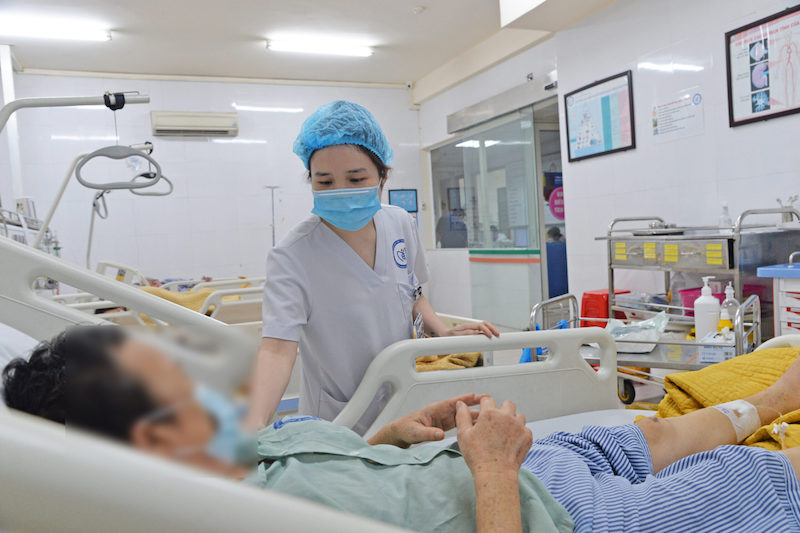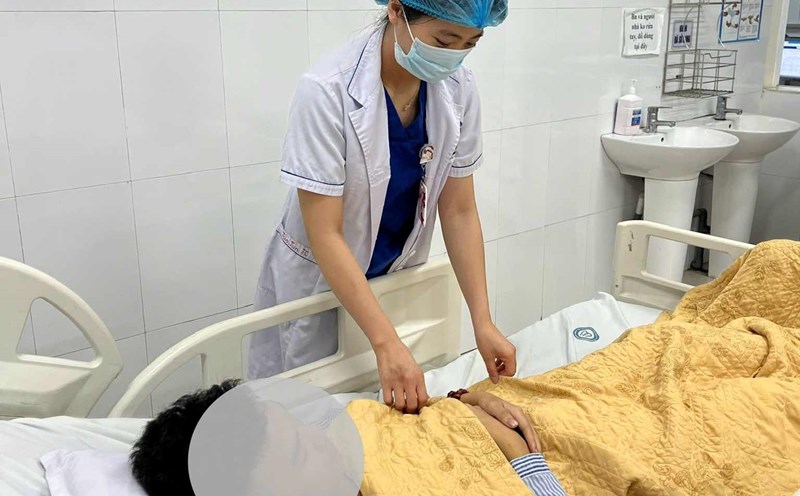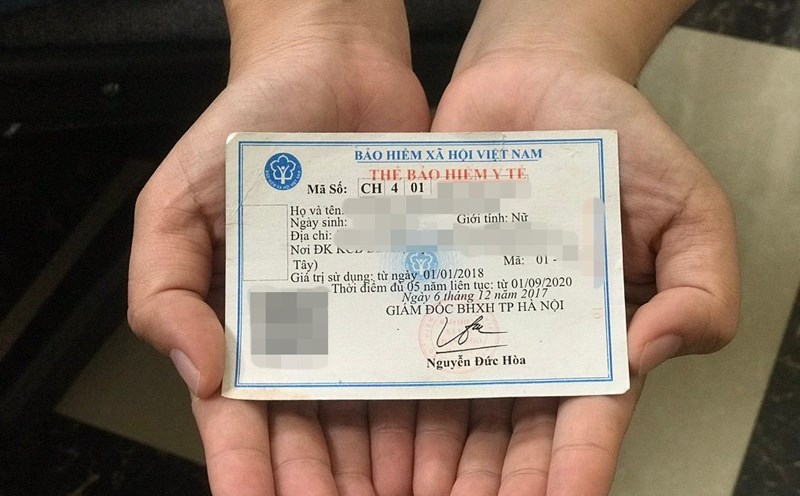The patient was admitted to the hospital with a blood sugar spike to 33.7 mmol/L, dehydration, severe exhaustion, accompanied by a low back - left shoulder abscess, pus, and widespread inflammation.
Dr. Ton That Kha, Head of the Intensive Care Unit - Central Endocrinology Hospital, said: "The reason is that patients voluntarily stopped taking diabetes medication - to switch to drinking sugar water according to the instructions of a traditional healer near their home, with the belief of "taking toxic treatment". This is not only unscientific, but is also extremely dangerous for patients".
For people with diabetes, taking in more sugar when they have lost control of their metabolism can put the patient in a state of increased blood penetration pressure (HHS) - an acute complication, with a very high risk of death if not treated promptly.
In this case, the patient not only increased the alarm level of blood sugar, but also splashed it at home, leading to soft tissue infections, deep abscesses, and forced to take active interventions: taking strong antibiotics, compensating for epidemics, injecting insulin to adjust the dose, and filtering the wound daily.
More regrettably, the patient was admitted to a provincial hospital and treated for 20 days, but then continued to be left untreated, without re-examination, and without monitoring blood sugar. This is not simply a result of underlying medical conditions but also a complication of lack of medical knowledge, mistakes in choosing treatment methods and blindly believing in unscientific advice.
After 3 days of active treatment at the Central Endocrinology Hospital, the patient's condition gradually improved. The patient was alert, with stable vital signs, and blood sugar had been controlled to a safe level. "The abs is no longer vuelling, the inflamed area around the wound is significantly reduced. red blood and electrolyte function indicators also gradually recovered after being compensated and closely monitored.
At this time, the doctor has given specific instructions to patients about the diet suitable for diabetes, the principles of moderate lifestyle, and how to use insulin at the right dosage - at the right time. Patients are also clearly explained the role of each drug in treatment, the importance of monitoring blood sugar at home and having regular check-ups as scheduled.
However, improvement during hospital stay is only the first step. If after discharge, the patient continues to stop taking medication, does not check blood sugar or follows unscientific advice, the risk of complications recurring is very high. For long-term diabetic patients with complications and high blood pressure, adhering to treatment is a vital factor.

According to the doctor, this is not an isolated case. In reality, many people with diabetes have had to be hospitalized in a serious condition due to arbitrarily stopping medication, believing in oral or folk methods without scientific basis. Many people come to the hospital late, when they have complications of nerve damage, blood vessel damage, necrotizing infections or stroke.
Diabetes is a chronic disease, requiring long-term monitoring, close control and multi-faceted coordination: taking medication, nutrition, exercise, periodic check-ups and treating complications if any. No drinking water or " foldable medicine" can replace the role of insulin, metformin or clinically researched and verified drug groups.
The doctor recommends that patients understand that there is no alternative to traditional treatment in diabetes.
Respecting on time, monitoring blood sugar regularly, controlling blood pressure, blood lipids, and adjusting lifestyle are all sustainable ways to live well with diabetes. Don't let false beliefs or poor advice cost you with your health, even your life.











